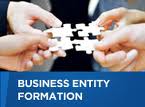In Nicholas Laboratories, LLC v. Chen (October 12, 2011) 11 C.D.O.S. 12769, the court decided that an employer was not obligated to indemnify its employee for expenses the employee incurred in successfully defending himself against employer’s lawsuit for breach of contract and other claims.
Nicholas Laboratories, LLC (“Nicholas Labs”), a Delaware limited liability company, sued Christopher Chen under seven theories of liability, alleging that Chen was hired by Nicholas Labs as its director of information technology, that Chen agreed to work full time and exclusively on behalf of Nicholas Labs, that Chen instead engaged in a business that made him a competitor of Nicholas Labs, that Chen diverted business opportunities away from Nicholas Labs, that Chen stole certain personal property from Nicholas Labs, and that Chen engaged in other wrong-doing.
On the eve of trial, the parties filed a stipulation that provided that Nicholas Labs would dismiss its complaint without prejudice and that Chen would submit his cross-complaint for disposition by a bench trial on the papers and without live testimony. The court entered judgment for Chen and against Nicholas Labs on the complaint and for Nicholas Labs and against Chen on the cross-complaint. The trial court rejected Chen’s claims that he was entitled to be awarded attorney’s fees under three different theories of indemnification.
Labor Code
Chen’s first theory was that Labor Code section 2802 requires Nicholas Labs to “indemnify” Chen for his attorney fees in this case.
Labor Code section 2802(a) states:
An employer shall indemnify his or her employee for all necessary expenditures or losses incurred by the employee in direct consequence of the discharge of his or her duties, or of his or her obedience to the directions of the employer, even though unlawful, unless the employee, at the time of obeying the directions, believed them to be unlawful.
The court noted that it is clear that section 2802 requires an employer to indemnify an employee who is sued by third persons for conduct in the course and scope of his or her employment, including paying any judgment entered and attorney’s fees and costs incurred in defending the action. But what about the employee who is sued by his own employer (a matter sometimes referred to as first-party liability)? That was not a question that had previously been resolved by a reported decision.
The court pointed out that the term “indemnify” when applied to litigation normally refers to a lawsuit brought by a third party against the indemnitee, but the court recognized that this meaning of “indemnify” is not universally applied. For example, parties to a contract may use the term “indemnity” to include direct liability to the other party to the contract (first-party liability) as well as third-party liability. The court also noted that Corporations Code section 317(d) specifically requires a corporation to “indemnif[y]” its agents “against expenses actually and reasonably incurred by the agent” to the extent the agent is successful in defending an action brought by or on behalf of the corporation against the agent.
After considering a number of statutory provisions, the court of appeal determined that the legislature did not intend to cover first-party liability when it used the term “indemnify,” and therefore, Labor Code section 2802 did not entitle Chen to be reimbursed by Nicholas Labs for the attorney’s fees he incurred in successfully defending himself against the lawsuit brought by Nicholas Labs.
Corporations Code
Chen’s second theory was that he was an “agent” entitled to indemnification under that Corporations Code section 317(d), which provides covers, among other things, any proceeding “by or in the right of the corporation to procure a judgment in its favor.” But by its terms, section 317 applies to “corporations,” not “limited liability companies,” and the court held section 317 does not apply to limited liability companies. Since Nicholas Labs was a limited liability company, Corporations Code section 317 was of no help to Chen.
Contractual Indemnification
Chen’s third theory was that he was entitled to indemnification under a contract. Nicholas Labs was managed by NS Holdings LLC, a California limited liability company. The operating agreement of Nicholas Labs provided that the manager (NS Holdings LLC) and its employees were entitled to indemnification. There was a question of fact whether Chen was an employee solely of Nicholas Labs or whether he was also an employee of NS Holdings. If Chen was an employee of the manager, NS Holdings, he arguably was entitled to indemnification under the indemnification clause that was part of the operating agreement for Nicholas Labs. The evidence was conflicting, and the trial court found that Chen was not an employee or agent of NS Holdings. The appellate court ruled that there was substantial evidence to support the finding and refused to disturb it.
Comment
Caution is called for when drafting indemnification provisions to make sure that unintended parties are not covered by a broadly written clause.




